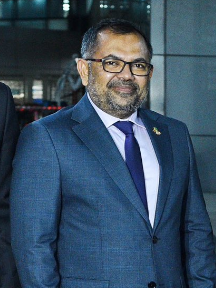Table of Contents
No Evidence Found?
Questions regarding the evidence in the murder case of Hardeep Singh Nijjar are conspicuous amongst the numerous unresolved questions surrounding the recent arrest of three Indian nationals in Canada. The developments underscore the complexity in the bilateral relations between Canada and India, as demonstrated by the absence of concrete proof by Canadian authorities.

The murder of pro-Khalistan activist Hardeep Singh Nijjar was linked to the arrest and charges of Karanpreet Singh (28), Kamalpreet Singh (22), and Karan Brar (22), as reported by Canadian police last Friday. But although Canada has spoken with Indian authorities regarding the arrests, accurate and relevant evidence associated with the case is still unclear.
Read more about Arrest of three Indian nationals in Canada.
The Tensions Now…What is India’s stand?
The two governments are at present talking concerning a number of issues, including as the activities of pro-Khalistan elements and threats posed against Indian diplomats residing in Canada, said ministry of external affairs spokesman Randhir Jaiswal. The excuse of deteriorating diplomatic ties, which intensified when Canadian Prime Minister Justin Trudeau asserted that Indian government agents participated in Nijjar’s murder, added to the gravity of the situation.

Jaiswal reiterated India’s stance on the subject, noting out that Canada has not provided any hard evidence to back up its contentions. There have been concerns raised by India about the political atmosphere in Canada and the tolerance demonstrated for separatists, radicals, and those who support violence.
Moreover, there have been reported cases of threatening and obstructions towards Indian diplomats, making their job hard. India additionally conveyed to Canadian authorities its worries over people associated to organized crime and supposedly from India infiltrating Canada and residing there.
The dispute continues to hinder diplomatic exchanges, as India’s high commissioner to Canada, Sanjay Verma, made clear. These confidential discussions, typically happen behind closed doors, serve to resolve persistent issues and address recurrent issues.
However, as consequence of recent events, there remains some strain in the bilateral relations between Canada and India. The challenges encountered in maneuvering this challenging diplomatic environment have been shown by the strong statements made by the Canadian deputy high commissioner to the minister of external affairs, and also by the strong reactions to provocative displays at public events.
As focus turns to an opportunity for diplomatic access for the arrested individuals, Jaiswal addressed the variances in national norms. He emphasized that the host nation could refuse such interactions unless the detained people explicitly seek for humanitarian access.
Read more About: S Jaishankar warning to Canada: ‘Newton’s law of politics’ may rove Hazardous
